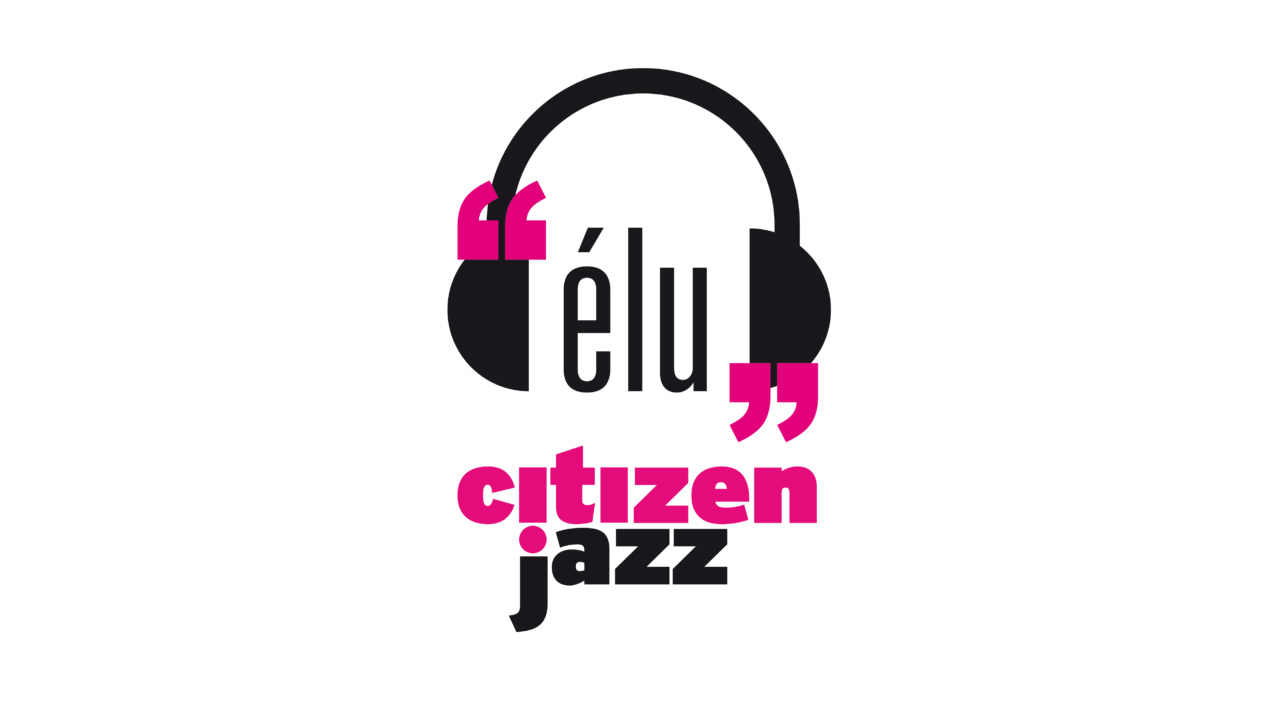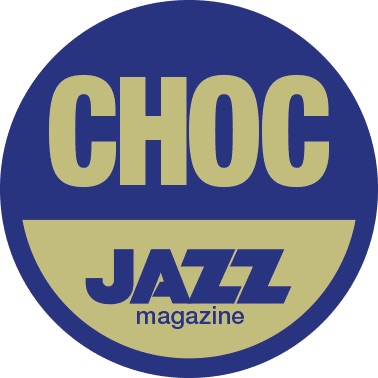Gábor Gadó - Veronika Harcsa Quintet The Language of Flowers
The first album of Gábor Gadó and Veronika Harcsa's group (Shekhinah, 2023), receiving Citizen Jazz magazine’s ÉLU award, featured Gadó’s fresh compositions with lyrics by Veronika Harcsa. The Language of Flowers, on the other hand, brings to life compositions written by Gadó more than two decades ago to lyrics by Eszter Molnár, and thus revives the brightest era of Hungarian vocal jazz, hallmarked by the name of Gábor Winand.
Between 2002 and 2006, Gadó and Winand released four albums (Corners of My Mind, Agent Spirituel, Different Garden, and Opera Budapest), taking their careers to new heights and winning prestigious French awards. The Gadó – Harcsa Quintet has selected 11 songs from these albums, approaching these pieces as one would the repertoire of jazz standards or classical songs: as melodies and lyrics that anyone can perform, finding their own voice in them.
In the band, we find musicians familiar from Shekhinah and Gadó’s other projects: Belgian trumpeter Laurent Blondiau, saxophonist János Ávéd, and the contemporary scene’s prominent cellist Tamás Zétényi adds defining colours to the character of the music.
Artists
Gábor Gadó – guitar
Veronika Harcsa – vocals
János Ávéd – tenor saxophone, flute, alto flute
Laurent Blondiau – trumpet
Tamás Zétényi – cello
About the album
Supported by the National Cultural Fund of Hungary
All compositions by Gábor Gadó, Lyrics: Eszter Molnár
Recorded at BMC Studio, Budapest on 29-31 January, 2024
Sound engineer: Zsolt Kiss
Mixed and mastered by Márton Fenyvesi
Artwork: Anna Natter / Cinniature
Produced by László Gőz
Label manager: Tamás Bognár
Reviews
Szabó Károly - Hangzásvilág.hu (hu)
Libisch Károly - Jazz.hu (hu)
Olasz Sándor - riff.hu (hu)
Dr. Nagy Sándor - JazzMa (hu)
Gábor Gadó - Veronika Harcsa Quintet: The Language of Flowers
The album is available in digital form at our retail partners
IF WE COULD GO BACK IN TIME
What language might flowers speak? One of Darwin’s most controversial theories was that the roots of plants are equivalent to the brain, which processes perceptions, and controls the crown.
A few years earlier another Charles, one Baudelaire, who caused scandal with Les fleurs du mal, wrote of intoxicating gardens of the night: “quivering on its stem / Each flower exhales like a censer / Sounds and perfumes turn in the evening air / Melancholy waltz and languorous vertigo!” Over the last few years a host of biologists have thrown themselves into investigating whether plants are able to create music or sounds (the answer is mostly an undecided no: at most they emit random noises, as we do when our stomachs rumble).
It is easier to answer the reverse question posed by the title of this album: what language is “flower language” or “florid language”? In Hungarian, this expression refers to a gentle euphemism that skirts around the essence of something. But according to the science of floriography, now almost lost in oblivion, each individual flower has a meaning, and with them a sensitive soul can send bashful messages to the world. Ivy is the symbol of connubial fidelity, hyacinth that of sorrow and mourning, lotus that of rebirth, the poppy that of blood-stained battlefields, but also (because of the seeds) that of stupor. Again, as we hear in the title song, the symbol of constancy and love is the bluebell, and also the equally blue forget-me-not. Might the ancients have known what modern science has been able to demonstrate, that in nature the production of the colour blue takes an especially long time both for plants and for animals?
For Gábor Gadó, The Language Of Flowers is “simply a darn good title”, which evokes associations in the listeners. And why these particular songs on this album? “We like them, and we were happy to play them again.”
After the scream-like upbeat to Friends Like You we hear blues guitar formulae, but in much more refined garb. Just as Bach, who in his own time raised the old-fashioned dance forms of gavotte, courante, and others, to high levels in his suites, so Gadó too raises the stylistic traits of the music of the Mississippi Delta to a universal level. “This is not a haiku” sings Veronika Harcsa in the next song, whose title is of course Haiku: about the carelessly shoved stone, of falling leaves, “lamenting what might have been”. Because ultimately this album is about suffering, loss, missed opportunities, unrequited love, and disappointments. “Is there anyone out there, who can say, if I could go back in time, would not change a single moment?” we hear in the song If I Knew Where To Begin. The astoundingly ordinary introduction is accompanied by a muted trombone, which seems to cut a hole in time with its strident tone.
The first singer of these songs (but not the last) was Gábor Winand, who, like the composer Gábor Gadó, was held in high esteem by the French public. He passed away three years ago. The albums they released in the early 2000s, Corners of My Mind, Agent Spirituel, Different Garden and Opera Budapest, signified for many a golden age, and showed Winand’s instinctive talent and the wealth of feeling in his voice.
But Gábor Gadó looks on these songs as if they were novelties he had never before encountered. He treats these compositions that he composed about two decades ago to lyrics by Eszter Molnár like a Bach Passion or a Beethoven symphony. This couldn’t have happened if he hadn’t found the perfect perfect performer in the person of singer Veronika Harcsa, who was expecting her first child when they made the recordings. She and Gábor Gadó recorded a joint album, Shekhinah, in 2023. This time too, the ensemble consists of János Ávéd (saxes, flute), Laurent Blondiau (trumpet) and Tamás Zétényi (cello), who enrich the compositions with their own ideas and improvisations. “A yearning for surprise, curiosity – that described what we were like at work, which also means that we stray into areas we’re not familiar with,” says Veronika Harcsa. As for what these songs mean for him, Gábor Gadó speaks with natural simplicity: “I just want them not to become museum pieces, to be screwed into the parquet. Instead, let’s play them again and again.”
This composer- and opus-centred attitude is not the only thing that creates a link to the centuries-old tradition of Western classical music. The tame melancholy of Let Me Know Peace might remind us of the Renaissance songs of John Dowland or Thomas Campion, in which the narrator was often a soul longing for rest and peace, yet wanting not only to break free from sorrow, but to find pleasure in it, just as we can see beauty in things as they wilt. In the modern age, people (and even folk in today’s sometimes soulless era agree) could no longer count on God, a superior being, as balm for their sorrows, and could hope merely in being able to experience their emotions to such a depth that the delight of experience brought them relief. This idea gave birth to human-centred art, in which the trees and flowers not only proclaim the glory of God, but also mirror the human soul. To touch on the title song (The Language of Flowers): the bluebell symbolizes constancy, the rose burning love.
Sometimes love is fulfilled, and sets the night ablaze (Love Song). Other times, it becomes a dizzying, wicked game: Milonga, which was originally a humorous, vivacious Argentine dance of black South Americans, darkens to a grotesque, ominous ballad. The best known story of unfulfilled love is brought to life in the operatic register of Orpheus and Eurydice – Monteverdi and Gluck also wrote similarly sublime, hovering music. This composition originally featured on the album Opera Budapest. Interestingly, here we listen to Orpheus’s lament sung by a female voice.
With the introspective guitar solo of All Souls we are amazed at Gadó’s tone: in his hands this string instrument sounds as if it were a church organ, and while the singer chants an Orphic song about the sufferings of the heart (of love, memories, and dark nights), the sacred guitar tones are joined by the trumpet and saxophone. Individual melancholy becomes universal, and the ordinary – holy. In the next song, the sun rises (Cold Light of Dawn). The finale of the album, Crossroads of Life, again evokes the centuries-old practice of Early Music, when over the improvised harmonies of the guitar we hear the extemporized trombone solo. This album shows that love and sorrow can be experienced most deeply when with them we embrace the music of the centuries and the feelings of thousands.
Máté Csabai
Translated by Richard Robinson

